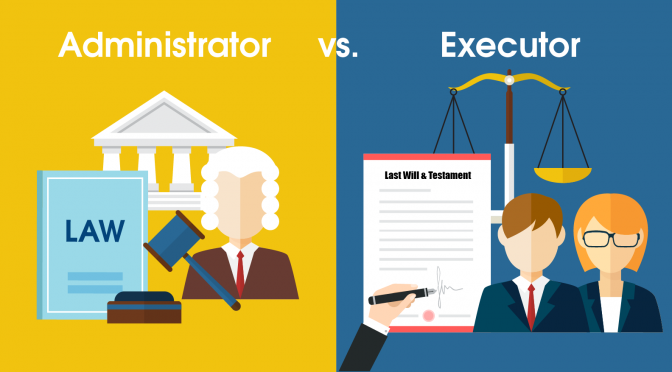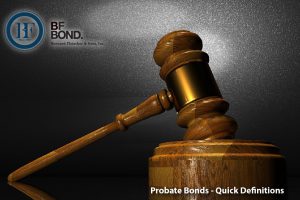(And why they both should be bonded)
A short answer is that an Executor (Executrix if a female) is the person whom is named in the Will to take charge of the estate. The Executor is responsible for wrapping up the deceased person’s affairs and distributing the assets to, or for the benefit of, the persons named in the will (beneficiaries).
An Administrator is the person in charge of the estate when my someone dies without a Last Will and Testament.
Both the Administrator and Executor are subject to the jurisdiction of the Probate Court. Both have similar duties. Selling properties, paying taxes, gathering and dispersing assets.
Administrators and Executors are fiduciaries. A fiduciary is a person who has been given the highest degree of trust and responsibility that can be imposed by law. Both must answer to and be accountable to the probate court. They must act in a fiduciary capacity with the settlement of the estate in the best interest of the estate. Their role as liquidators should have the best interest of the estate in mind when dealing with any person, property, interest, trust, or savings.
The most significant difference between an Executor and an Administrator is that an Administrator’s authority is limited to what the law provides in the statutes. The Executor has all the same legal authority PLUS additional powers that may be granted in the Last Will and Testament.
The Last Will and Testament can give the Executor the power to sell real estate at private or public sales without having to go through the courts, this saves time and money.
In the end, trust is key. Money and power without checks and balances can influence a person’s judgments. This is why a BOND is so important. A bond holds accountable the person and gives the heirs confidence this Executor or Administrator will be honest and proper when dealing with the estates money and business.
To learn more visit us at www.bfbond.com and live chat with a knowledgeable Bond professional or call us at 800.921.1008 to speak with someone regarding you particular situation or apply here.





